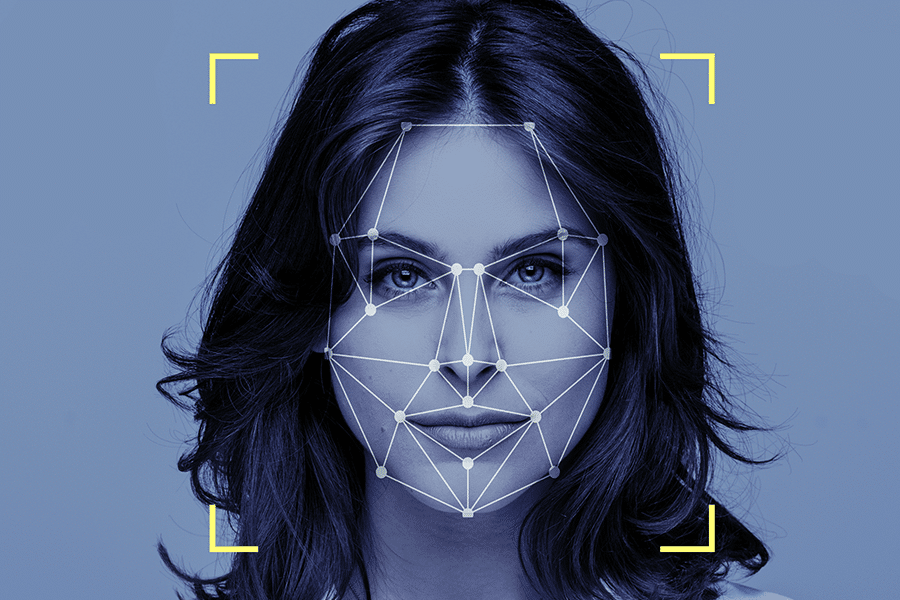A facial recognition system is a technology potentially capable of matching a human face from a digital image or a video frame against a database of faces.
Live facial recogition is a growing concern in the UK, and the Metropolitan Police as well as South Wales and Gwent Police already make extensive use of it. But how can you spot it in operation – and what can you do about it?
As the right to protest is increasingly restricted, we expect that facial recognition technology will be increasingly deployed at protests and that some protesters will be placed on watchlists.
Live facial recognition identifies people in real-time, using AI-powered surveillance to compare a live CCTV feed against a watchlist. A camera scans and processes people’s ‘face print’. Police forces usually do this using facial recognition vans, but sometimes they run it through CCTV cameras.
We’ve collaborated with Big Brother Watch to bring you a guide to facial recognition at protests – read it on the Netpol blog here.
The Ethics of Facial Recognition Software at Protests
In recent years, the proliferation of facial recognition technology has raised significant ethical concerns, particularly when employed in the context of protests and demonstrations. As societies grapple with the balance between technological advancements and individual rights, the use of facial recognition software at protests presents a complex and multifaceted dilemma.
1. Privacy and Informed Consent
Privacy is a fundamental human right, enshrined in various international agreements and national laws. The use of facial recognition technology at protests raises concerns about the right to privacy, as individuals attending demonstrations have a reasonable expectation that their identities and actions will not be indiscriminately monitored and recorded. Facial recognition software has the potential to capture and process biometric data without explicit consent, infringing upon individuals’ control over their personal information. This lack of informed consent undermines the ethical principle of respecting individuals’ autonomy and raises the question of whether technological surveillance should supersede personal agency.
2. Freedom of Expression
Protests and demonstrations are vital avenues for citizens to express their opinions, advocate for social change, and hold governments accountable. The presence of facial recognition software at protests could have a chilling effect on individuals’ willingness to participate in such activities, out of fear that their identities might be used against them in the future. This potential deterrence undermines the principle of free expression, hindering the democratic process and eroding civil liberties. A balance must be struck between maintaining public order and upholding the right of individuals to voice their grievances without fear of retribution.
3. Surveillance and Power Imbalance
The use of facial recognition technology by law enforcement or government agencies introduces an inherent power imbalance between authorities and citizens. The asymmetry in surveillance capabilities can lead to the abuse of power, potentially allowing for the targeting of specific groups or individuals based on political or personal affiliations. This dynamic can foster an environment of distrust between citizens and the institutions meant to protect them, undermining social cohesion and eroding the legitimacy of law enforcement efforts. Ethical considerations demand that any use of surveillance technology should be subject to rigorous oversight and checks to prevent misuse.
4. Discrimination and Bias
A critical concern surrounding facial recognition software is its susceptibility to bias and discrimination. Many existing algorithms have shown a tendency to misidentify individuals with darker skin tones or non-conforming gender presentations at higher rates than those with lighter skin tones or more conventional appearances. Deploying such technology at protests can exacerbate societal biases and lead to disproportionate targeting of marginalized groups. This results in the violation of the ethical principle of fairness and equal treatment, potentially infringing upon individuals’ rights and perpetuating systemic injustices.
Conclusion
The ethics of using facial recognition software at protests are rooted in a delicate balance between security, personal liberties, and democratic values. While maintaining public safety is essential, it must not come at the cost of eroding fundamental rights and principles. Ethical considerations dictate that the deployment of facial recognition technology should be guided by robust legal frameworks, stringent oversight, and a commitment to protecting individual autonomy, free expression, and equal treatment. As societies continue to grapple with the implications of emerging technologies, thoughtful and transparent discussions are crucial to shaping the ethical boundaries of their application in public spaces like protests.
Join us in helping to bring reality and decency back by SUBSCRIBING to our Youtube channel: https://www.youtube.com/channel/UCQ1Ll1ylCg8U19AhNl-NoTg and SUPPORTING US where you can: Award Winning Independent Citizen Media Needs Your Help. PLEASE SUPPORT US FOR JUST £2 A MONTH https://dorseteye.com/donate/












